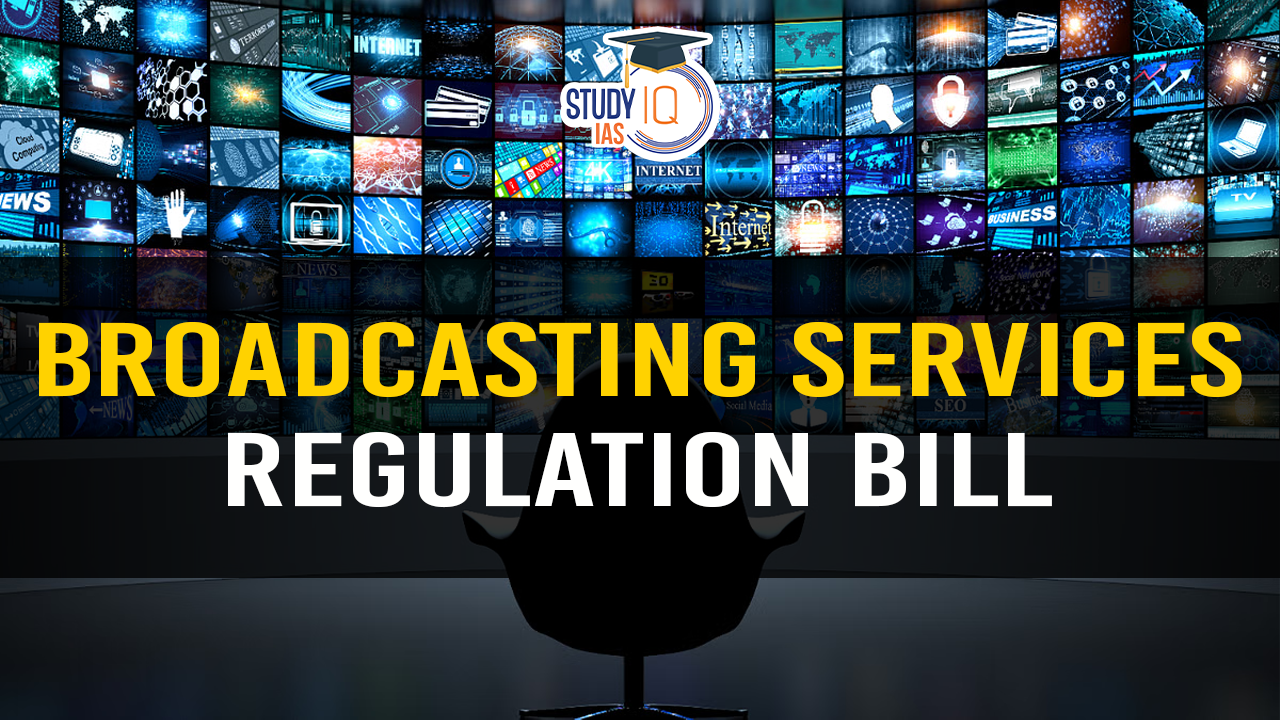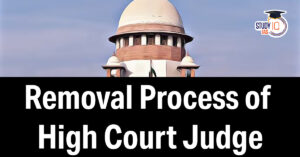Table of Contents
The Ministry of Information and Broadcasting (MIB) recently circulated the draft Broadcasting Services (Regulation) Bill 2024 to a few industry stakeholders. The proposed regulations include expanded oversight for independent news creators on platforms like YouTube, Instagram, and X, raising concerns about freedom of speech and expression.
Broadcasting Services (Regulation) Bill 2024: Objective and Intent Behind the Draft
- Digital media serves as a vital alternative forum for creators and commentators to scrutinise government policies and demand accountability, as seen in recent elections.
- It enables dissenting voices ignored by mainstream media and aids in forming counter-narratives on key issues.
- Objectives of the Bill: The Bill aims to extend regulations currently applied to traditional television and radio to the Internet, consolidating existing guidelines and increasing accountability among broadcasters.
- It covers all large influencers, content creators, and political commentators, attempting to regulate speech.
- Intent of the Bill: The Bill could significantly undermine creative independence and stymie online freedom of expression in India, both of which are vital for a well-functioning and vibrant democracy.
Key Provisions of the Draft Bill that Undermine Creative Independence in India
- Reimagines the Term “Broadcaster”: Includes digital news broadcasters, defining them as anyone who systematically broadcasts news and current affairs online, including on social media platforms via text, video, or audio.
- Commentators on YouTube, Twitter, blogging portals, or podcasts discussing current affairs and socio-political issues will be covered under the Bill.
- Provisions for Digital News Broadcasters: Broadcasters with a certain threshold of subscribers/viewers must notify the government, conform to a Programme Code, set up a grievance redressal mechanism, and adhere to a three-tier regulatory structure.
- For content other than current affairs, broadcasters are required to get pre-certification by a Content Evaluation Committee.
- Penalties for Digital News Broadcasters: Users can raise complaints against Programme Code violations, and the central government has the power to impose penalties, direct broadcasters to go off-air, and prohibit transmission in the interest of sovereignty, security, public order, decency, morality, or foreign relations.
- Extra-Territorial Application: The current draft potentially brings global content creators, news publishers, and commentators on current affairs within the scope of the Bill.
- Threatening Safe Harbour: The Bill imposes new obligations on social media intermediaries, including compliance with government demands for information about broadcasters on their platforms.

Issues with the Provisions of the Draft Broadcasting Services Regulation Bill 2024
- Ignores Fundamental Differences Between TV and the Internet: Unlike TV, where linear programming is disseminated one-to-many, internet content is demand-based and one-to-one.
- Applying the same regulations as TV may significantly increase costs (while reducing speed to market) for smaller-scale content creators and independent journalists, leading to censorship and chilling effects on free speech.
- Implementation Challenges: The extra-territorial application of the provisions is difficult to implement given the global, decentralised nature of the web.
- Additional Regulatory Difficulties: The IT Act 2000 and accompanying IT Rules already require social media intermediaries to establish grievance redressal mechanisms, comply with government orders, and operate a notice-and-takedown regime for flagged content.
Way Ahead for Internet Regulation in India
- Constitutional Challenges to the IT Rules 2021: The IT Rules 2021, which attempted to create government oversight over media, have been stayed by the Courts.
- Other measures (such as the IT Act 2000) should be leveraged if the government is worried about fake news or harmful/misleading content.
- Thorough Deliberation Required: The draft Bill requires thorough deliberation and discussion with a broad and diverse range of stakeholders before it is made into law.


 Waqf Act (Amendment) Bill 2025: Key High...
Waqf Act (Amendment) Bill 2025: Key High...
 Delimitation: Issues, Legal and Constitu...
Delimitation: Issues, Legal and Constitu...
 Transfer and Removal Process for High Co...
Transfer and Removal Process for High Co...





















